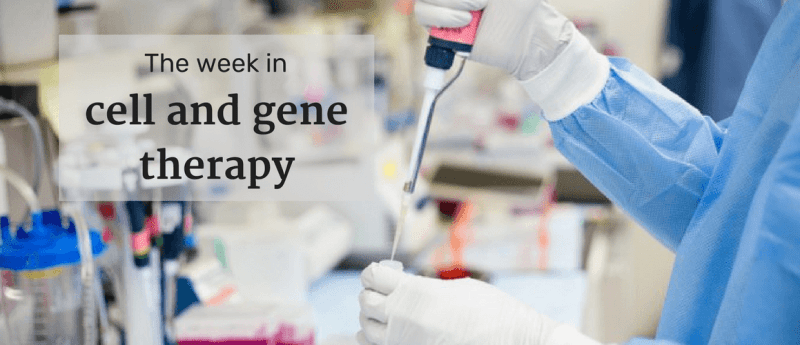Cell therapy weekly: FDA-approved CAR T-cell therapy to be covered by CMS

This week: World-first iPS cell clinical trial approved by Japan health ministry, new company raises funds to accelerate development of lifesaving cell therapies and Allogene Therapeutics to build state-of-the-art manufacturing facility for allogeneic CAR-T therapy development
The news highlights:
FDA-approved CAR T-cell therapy to be covered by CMS
World-first iPS cell clinical trial approved by Japan health ministry
New company raises funds to accelerate development of lifesaving cell therapies
Allogene Therapeutics to build state-of-the-art manufacturing facility for allogeneic CAR-T therapy development
FDA-approved CAR T-cell therapy to be covered by CMS
The Centers for Medicine and Medicaid Services (CMS) has proposed to cover FDA-approved CAR T-cell therapies under “Coverage with Evidence Development.” This will encompass therapy nationwide when it is offered in a CMS-approved registry or clinical study, in which patients are monitored for at least two years post-treatment. The registers can then be utilized to identify patients that will benefit from CAR T-cell therapy and inform future decisions by the agency.
“CAR T-cell therapy was the first FDA-approved gene therapy, marking the beginning of an entirely new approach to treating serious and even life-threatening diseases,” explained CMS Administrator Seema Verma. “Today’s proposed coverage decision would improve access to this therapy while deepening CMS’s understanding of how patients in Medicare respond to it, so the agency can ensure that it is paying for CAR T-cell therapy for cases in which the benefits outweigh the risks.”
World-first iPS cell clinical trial approved by Japan health ministry
Japan’s health ministry has approved the world’s first clinical trial in which induced pluripotent stem cells (iPS cells) are used to treat patients with spinal cord injuries. The trial, led by a team of researchers from Keio University, will inject neural cells produced by iPS cells into four patients suffering from spinal injuries incurred through sport or traffic accidents. The same approach has already been successful in enabling a paralyzed monkey to walk again.
“It’s been 20 years since I started researching cell treatment. Finally, we can start a clinical trial,” commented Hideyuki Okano, team lead at the Keio University School of Medicine. “We want to do our best to establish safety and provide the treatment to patients.”
New company raises funds to accelerate development of lifesaving cell therapies
An emerging cell therapy company, Cell Mogrify Ltd (Cambridge, UK), has raised $3.7 million in seed funding from major UK investors in a bid to accelerate their mission of commercializing cellular research. This investment should enable the company to advance its systematic big-data science approach, designed to identify the optimal combination of transcription factors or small molecules required to convert any mature cell type into another cell type without going through a pluripotent stem cell- or even a progenitor cell-state.
Mogrify director, Professor Julian Gough commented, “To have the backing of such high-profile investors at this stage in the company’s development is testament to the strength of both the Mogrify technology and the promised growth potential offered by a highly scalable business model. I look forward to working with Darrin as CEO. I believe we have a shared mission to transform the future development of lifesaving cell therapies.”
Allogene Therapeutics to build state-of-the-art manufacturing facility for allogeneic CAR-T therapy development
Allogene Therapeutics announced that it has entered into a lease agreement to develop a new cell therapy manufacturing facility in California. The facility will provide GMP manufacturing for clinical supply and commercial product upon regulatory approval to assist contract manufacturing organizations currently used by the company.
“Building state-of-the-art manufacturing capabilities is at the core of our strategy to deliver readily available cell therapy faster, more reliably and at greater scale,” explained Alison Moore, Chief Technical Officer of Allogene. “This manufacturing facility and continued build out of our in-house process development and characterization capability will allow us to advance manufacturing and secure the supply of our AlloCAR Tâ„¢ therapies.”
For more weekly cell therapy news, read previous editions of the cell therapy weekly.